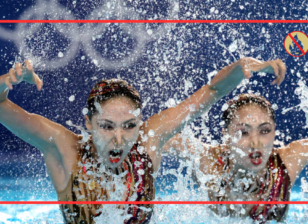What is the most controversial Tour de France?
Founded in 1903, the Tour de France has been a staple of the sporting calendar. It is one of the most renowned and difficult road bicycle racing competitions in the world. The Tour de France winds across a variety of geographical locations, testing the best riders in the world and winning over millions of spectators worldwide. It alongside other esteemed Grand Tours like the Giro D’Italia and Vuelta A Espana.
Even with its legendary reputation, the Tour de France has not been without controversy. These have included doping scandals, titles being revoked, bans, and permanent expulsions. This article delves into the turbulent past of the Tour de France, examining some of its most contentious events and their effects on cycling as a sport.
Early Years and the Rise of the Tour de France
During its infancy, the Tour de France offered hope to a great number of people and demonstrated the resilience of the human spirit. However, reports of doping started to damage the event’s reputation as it became more well-known and the pressure to perform increased. The cycling community began to see a wave of scandals that rocked the sport’s foundation as a result of the usage of performance-enhancing chemicals, particularly erythropoietin (EPO).
Lance Armstrong and the Shadow of Doping
Without mentioning Lance Armstrong, no conversation about the scandals surrounding the Tour de France would be complete. The revelation of the former cycling champion’s extensive usage of performance-enhancing substances marred his quick ascent to fame. Armstrong made a spectacular comeback from cancer and made a symbolic return to competitive cycling. His downfall was sealed when he lost his seven Tour de France victories and was threatened with a lifelong ban from riding.
The Festina Affair and the Ongoing Battle Against Doping
The 1998 Festina Affair was a turning point in the battle against cycling doping. Following the arrest of Festina team soigneur Willy Voet. A network of drug use inside the cycling world was discovered through a succession of police raids and investigations. The Union Cycliste Internationale (UCI) and other regulatory authorities were made aware of this situation. It resulted in a heightened focus on anti-doping procedures and tougher enforcement of regulations.
Tragic Accidents and Fan-Induced Chaos
Tragic incidents and turmoil caused by fans have also occurred on occasion during the Tour de France. One of the most well-known events was in 2021 when multiple riders were hurt in a crash that was provoked by fans during the Tour de France’s first stage. The incident brought attention to the fragility of cyclists in the intense racing circumstances and prompted discussions about the necessity for improved crowd management measures.
The Legacy of Controversy: Toby Martin and Floyd Landis
The Tour de France has a history of controversy, with figures like Floyd Landis and Toby Martin representing the negative aspects of sports. Their roles in doping scandals and professional cycling suspensions serve as warning stories, reminding competitors and spectators of the consequences of performance-enhancing drugs.
The Perilous Ascent: Tom Simpson and Mont Ventoux
Throughout the Tour de France’s history, many victories and tragedies have occurred on the perilous ascent of Mont Ventoux. The tragic loss of British rider Tom Simpson on this infamous peak during the 1967 Tour serves as a sobering reminder of the physical and psychological toll that competitors take while vying for the coveted Yellow Jersey.
Beyond Doping: Substance Abuse and Struggles
Performance-enhancing drug use has not been the only topic of controversy during the Tour de France. Substance abuse incidents, involving alcohol and amphetamine use. It have also marred the sport, tarnishing its reputation and raising questions about the welfare of the participating athletes.
The Road Ahead: Reformation and Resilience
The Tour de France, in spite of its turbulent past, continues to stand for perseverance, fortitude, and the quest of athletic greatness. We may expect for a more transparent and clean future for the sport with further attempts to enforce strict anti-doping regulations by groups like the UCI and the US Anti-Doping Agency. But everyone involved in the Tour de France’s journey towards change and redemption will need to be vigilant and unwaveringly committed.
Conclusion
The Tour de France, which showcases the victories and hardships of competitors who push the limits of their physical and mental endurance, is a monument to the unbreakable human spirit. The Tour de France, despite its controversial past, remains a timeless symbol of athletic excellence, fostering hope and tenacity in the face of doping scandals and catastrophic accidents. Despite the ongoing struggle to maintain a fair and competitive cycling community.





